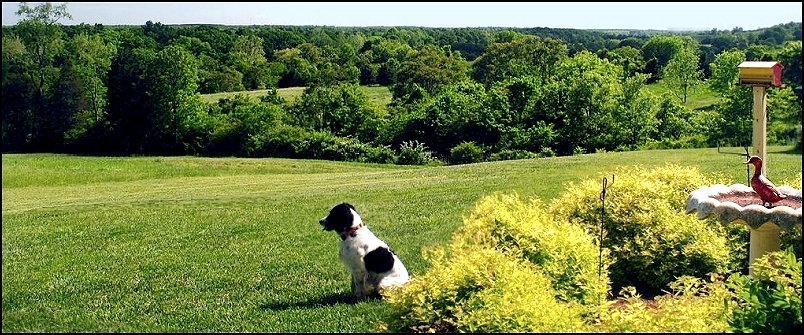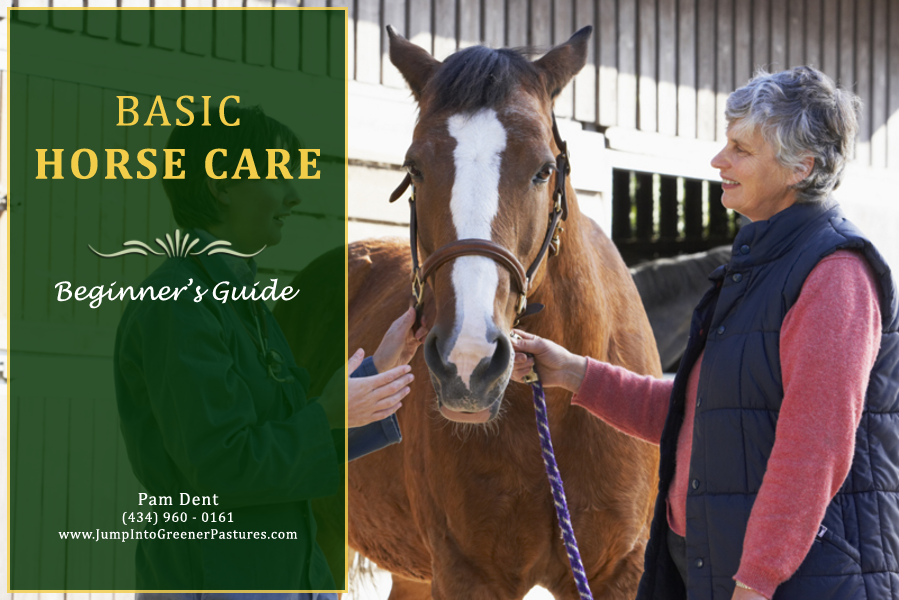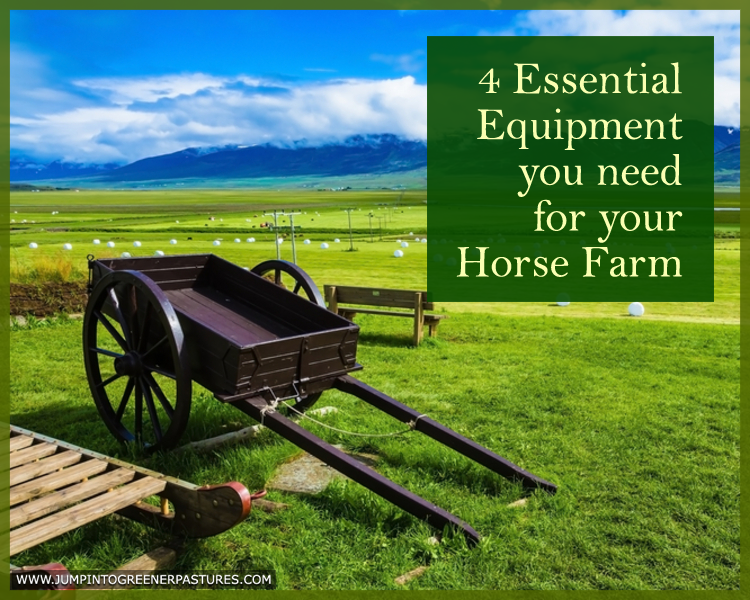Lisa Sturtevant, Chief Economist for the Virginia Association of Realtors, has recently given us an overview of various market conditions affected by low home appraisals. Can a low appraisal derail home buyers?
A home appraisal is an evaluation of a home’s market value based on comparable recent sales and sometimes recent listings in the neighborhood. Appraisals are required by a lender to protect both the lender and the buyer and to help to ensure that the buyer is not borrowing more than the home is worth.
In hot housing markets, like the one we have been in for nearly a year, it can be challenging to accurately appraise the value of a home. Different appraisal values and below-offer appraisals can be confusing for home buyers and sellers and can sometimes prevent a successful transaction.
Different Methods, Different Values
An appraisal is typically conducted by a licensed real estate appraiser at the request of a lender or borrower. Appraisers generally use data on the prices of comparable homes sold in the last three or six months, or sometimes over a longer period. However, in fast-paced markets, where prices are rising rapidly, looking back at past home prices might not be a good indication of current values. It is important in this busy housing market that appraisers are not only using data on closed sales, but are also using data on pending sales and listings.
Automated valuation models, or AVMs, have been a popular way for consumers to get an immediate assessment of their home’s value. These AVM values can also sometimes be used in refinance applications. AVMs collect data from multiple listings services, along with data from public records, to compare recent sales and list prices and generate a value for a particular home.
There are differences in the methodologies in these AVMs, including the types of data used, how frequently the data are updated, and the number of comparables used in the estimate. These differences in data and methods can result in different home value estimates. (I plugged my home address into five different AVMs, and the difference in estimates was more than $100,000.) Because the housing market is so fast-moving, it is important that the data they use are updated very frequently.
These public-facing AVMs are popular with consumers, but they can also provide misleading information and result in disappointed (or pleasantly surprised) homeowners when a licensed appraisal is produced.
Appraisals Below Offer
In this frenzied housing market, bidding wars and offers over list are common. When the home appraises at the contract price, the deal can go off without a hitch. However, appraisals below offer can throw up a roadblock to the purchase.
While there are stories about buyers losing out due to a low appraisal, the data suggests that it is very uncommon for low appraisals to completely derail a transaction. According to Fannie Mae, an estimated 8% of appraisals came in below offer price in 2017. Zillow estimated that 10% of deals that fell through in 2018 did so because of a low appraisal. More recently, the National Association of REALTORS® reported in August 2020 that appraisal issues accounted for less than 1% of real estate transaction issues.
Despite the fact that appraisal issues seem to be relatively uncommon, homebuyers that are worried about a home not appraising have increasingly been waiving appraisal contingencies in their offers. Nationally, Redfin estimated that about 20% of winning home offers last summer had waived the appraisal contingency. According to a survey of Virginia REALTORS®, in March 2021, 37% of REALTORS® said that it was very common for buyers to waive the appraisal contingency to make their offers more competitive. For some buyers, waiving the appraisal could be problematic down the road. For others, including those using an FHA or VA loan, an appraisal contingency is not an option.
Helping Buyers and Sellers When Appraisals Come in Low
There are several steps REALTORS® can recommend to buyers and sellers if an appraisal comes in lower than expected:
REALTORS® should remind clients that AVMs are not meant to serve as a formal appraisal and that for most transactions, a lender will require an appraisal from a licensed real estate appraiser.
Appraisals should include data not only on recent sales, but should also take into account homes that have recently gone under contract and homes currently listed for sale. The fast-paced market means that home prices six or even three months ago are not necessarily a good indicator of current home values.
Buyers, sellers, and lenders can request a review of the appraisal to see if there were any inaccuracies in the analysis.
If the appraisal comes in below an offer, buyers could have the option to increase the down payment to make up the difference or take some of the money set aside for a down payment to close the appraisal gap.
It is also possible that a low appraisal is a sign that the offer price really is above the home’s true value and that the smartest thing for the buyer to do is to step away from the deal and move on to the next home. Having a REALTOR® who can provide sound advice on market conditions will be a tremendous value to buyers in this situation.
*Information as of 07/21/21Optimize Your Sales Price

When it’s time to sell, sellers need to decide how they want to present their home to the market. Should we do some updates? Repairs?
Not Like Selling A Car
Doing a lot of work to a car before you trade or sell it to a dealer is not generally a good idea. In most cases, you won’t recapture the cost of the repairs. They can do the repairs for a less than you can. Not to mention, you are selling to a wholesaler who needs to sell it again to the end user and still make a profit.
A home sale is totally different.
The owner is selling the home to an end user. Since the buyer, in many cases, is using their available funds for the down payment and purchase costs, they don’t have money to spend on repairs or decorating the home. They would need to live in it “as is” for a while which may not be as appealing as finding a home that is refurbished, up-to-date, and ready to move into.
Even if the buyer would be willing to get a home improvement loan after the sale, it would be a separate loan at a higher interest rate making their payment higher than financing it all in one mortgage at the lower first mortgage rates.
The seller may experience some inconvenience going through the repair process, but it will, most likely, result in a higher sales price in less time. Not all buyers have the imagination to know what something will look like after it is finished. It is better to go ahead and get the work done before putting it on the market.
What Matters?
The bathrooms and kitchen are the most important rooms to update. If the finish on the cabinets is bad, have them painted. New countertops and appliances can make a world of difference. Paint, countertops, and fixtures in the bath give the home a great feel.
In addition to the repairs, a major cleaning and decluttering can make a home look and feel better than the competition.
Where To Begin?
The first step is to go through the home and pack up or get rid of things you don’t need or things that detract from the home like excess furniture, exercise equipment, personal artwork, etc. Now, do the same with the closets and cabinets. By getting rid of things, there will be more room and they’ll look larger.
Next, walk across the street from your house and give it a critical look. How is the drive-up appeal? Would you want to go inside to see the rest if you were a buyer? Are the trees and shrubs trimmed? Yard cleaned up? Do you have blooming flowers in the beds? Does the front door or mailbox need a new coat of paint? Do you need to power wash the outside of the home and the sidewalks and driveway? Do the windows need washing?
Buyers are visual people and beauty is always rewarded. Restaurants know that people eat with their eyes first and they go to a lot of effort to plate the food so it is visually appealing. The same approach works for selling a home. Ask your agent if they have ever taken a buyer to a home that refused to go inside because they didn’t like the looks from the street.
Realtors can make specific recommendations and assist you in finding someone to do the work. This is what we do.
Pre Listing Inspections for Sellers
A prelisting inspection can provide an advantage to Sellers. The process of selling a home can come with unwelcome surprises, and a prelisting home inspection can eliminate one of the most common Seller stresses.
The buyer contracts for the home with a provision for a professional home inspection. Their inspection could unearth things that the buyer didn’t expect or even anticipate. If it doesn’t trigger an action to terminate the contract, the buyer will inevitably ask the seller to make all or most of the repairs.
When presented with the buyer’s request, the seller may take the opposite position of not wanting to do any of the repairs. The buyer then must accept the property in its “as is” condition or negotiate a reduced price or credit with the seller in lieu of the repairs.
Any experienced agent can tell you that sometimes a mutually agreed negotiation is reached and other times, an impasse is met that cannot be resolved. Then the buyer elects to terminate the contract, and the house has to go back on the market. But this time the property may be stigmatized in the eyes of buyers. Importantly, deficiencies may be uncovered that require a disclosure that has to be made to all parties looking at the home and that may deter future showings and offers.
Taking a pro-active approach, by obtaining a pre-listing inspection, sellers can find out about things that will probably show up in a buyer’s inspection. The sellers can get the deficiencies repaired before the home is shown and it will help the buyer feel more confident with the home. Another option would be to disclose them as not working and make a price adjustment. Either way, the seller is in control and is taking a position of transparency with potential buyers.
In some cases, the pre-listing inspection may show things in working order that the buyer’s inspection indicates as needing repair. No two inspectors will find everything or see everything the same way. However, home inspectors are required to be licensed by the state and inspect accordingly. With two disinterested parties having opposing professional opinions, there is the basis for negotiations which will have a more likely chance for a mutual agreement.
Disclosing things that are not in working order can reduce liability in the future. The pre-listing inspection by a professional, combined with the seller disclosing major deficiencies properly, can reduce potential liability.
For the small investment in the pre-listing inspection, the benefits to the seller are well worth the expense. You and potential buyers will have a better idea of the condition of your property and know what to expect. You can present the property in a transparent way that will build confidence with the buyer. You’ll avoid unpleasant surprises as well as possible delays. Pre-listing inspections can lead to faster sales and satisfaction for everyone involved.
If you want to know more details about what happens with a home inspection, CLICK HERE.
Home Buying Steps
WHAT IS THE PROCESS OF BUYING A CHARLOTTESVILLE VIRGINIA HOME?
It’s not just first time buyers who can become overwhelmed with the process of buying a home. If you haven’t purchased a home recently, this might give you a refresher of exactly what steps will be necessary to purchase a Charlottesville Virginia home, and in what order they are likely to occur. [Read more…]
Charlottesville Home Inspections
Like Charlottesville Virginia, each state and each region has its own customs and laws regarding property home inspections for potential buyers. It sounds like a simple topic. It’s not.
Importance of Home Inspection in Written Contract
In Virginia the flow and the mechanics of conducting a property inspection or a home inspection in the Charlottesville area are governed by the written language in the Inspection Addendum of the Contract to Purchase. For any contract to be enforceable in the state of Virginia, it must be in writing. That Inspection addendum is signed by all parties as part of ratifying (our term for ‘completing’) the agreement to purchase. The Inspection becomes a contingency of the contract, meaning that the completion of the contract is dependent upon completing the performance and terms specified in the inspection addendum as well. If this is becoming technical or confusing, we apologize…. this is always best explained by an attorney in Virginia who specializes is real estate, but we’ll do our best to make it understandable.
 There are many types of home and property inspections so we’ll deal with two of the main ones in our Charlottesville VA area which are (1) Residential Home/property Inspections and (2) Study Period Inspections (typically for large acreage farm or estate properties). If the buyer is purchasing a large estate or a farm with acreage, that’s when we recommend a Study Period for their inspections, and we’ll talk about that after we finish the standard Home Inspection section of this page.
There are many types of home and property inspections so we’ll deal with two of the main ones in our Charlottesville VA area which are (1) Residential Home/property Inspections and (2) Study Period Inspections (typically for large acreage farm or estate properties). If the buyer is purchasing a large estate or a farm with acreage, that’s when we recommend a Study Period for their inspections, and we’ll talk about that after we finish the standard Home Inspection section of this page.
Residential Home Inspections
Both buyer and seller can negotiate to agree on the terms of any inspection. Some sellers will not permit any inspections (not always to hide defects… sometimes the owner is quite ill or there are other reasons why an inspection would be a hardship). Some sellers specify that inspections may be conducted only for ‘informational purposes’, in which case the contract will also clarify whether the buyer must proceed to a closing regardless of the results, or whether the buyer has the right to end the process for a purchase based on the inspection findings.
What Does “As Is” Mean?
Many listings are offered “AS IS” and either of the above scenarios could apply to those terms. When a home is offered ‘AS IS”, it does not necessarily mean that there is anything wrong that an inspection would find. Instead it might mean that the seller expects the buyer to conduct inspections but the seller has no intention of negotiating to correct any deficiencies that might have been discovered as a result of the buyer’s inspection process.
Buyer Beware in Virginia Home Purchase
During the inspection it’s also the time to sort out the marketing from the truth. Virginia real estate law is a version of ‘buyer beware’ and it’s the responsibility of a buyer to verify any claims made by the seller in a listing or otherwise. Marketing exaggerations should be tested. Years ago I discovered the following discrepancy regarding what a Florida listing actually claimed: a “ski-able lake” is not a 30-foot pond with an alligator in it. really.
In case you’re wondering, in the event that we are representing a buyer of Charlottesville real estate, we recommend that our buyers hire professional certified inspectors to conduct the home inspection, even if their Cousin Louie knows a lot about construction and has offered to do it for the buyer for free. Professional inspectors provide photographic evidence of the details of their inspection, they provide summaries of anything they consider to be sub-standard, they offer remedies to correct the issues, and they provide a full report of their findings. Depending upon several factors, a home inspector may or may not be able to provide cost estimates to correct any problems.
Tell Me What To Expect With a Home Inspection
When a home inspection is scheduled, sellers in our area typically have agreed to leave the home so that the inspector and the buyers can have time together to critique the property findings and to discuss any issues freely away from the sellers. Depending upon how large or how complicated a home may be, an inspection can last anywhere from a couple of hours to four or five hours or more. We strongly recommend that, if possible, the buyers should attend their own home inspection. There are several reasons we recommend it.
Should You Attend Your Home Inspection?
First of all, when a buyer is present during the home inspection, he/she has the right to ask questions about the inspection procedure. In the process of reviewing each inspected area of the home, a buyer is able to get additional advice about each system in the home as well. Think of it as a “How To Use Your New Home” class. It is immensely informative for most buyers to see how the inspection is conducted. Following is a typical scenario (the process varies from inspector to inspector):
Describe What The Home Inspector Does
An inspector might begin with one area of the home such as the electrical breaker box. It will be checked (usually with a flashlight) to assure that the connections are properly installed and that the materials (wires etc) are in good condition and that they meet the current building codes in that area. Some older homes do not come up to modern code standards but as long as their installations match the optimum standard for the date when they were installed and the materials are in good condition, they are usually passable. Any defects will be photographed and noted for the summary report.
As you move around the home with the inspector to the various locations, details that are not obvious will be pointed out to you. Over the years we’ve seen many of them, but they might be things such as: how to operate the flue of your chimney; when the roof might require new shingles or the flashing is exposed; washer, dryer, and dishwasher may be tested to assure functionality; gutters and eaves checked for drainage; ceilings inspected for any signs of water damage, previous or current; walls and floors inspected for any signs of rodent or insect infestation; railing and stairs tested for sturdiness or damage; and windows and doors are examined for air leaks or cracks.
Water in Basement or Crawl Space
 And then there’s the basement or crawl space. If the home has any space underground, the inspector will pay close attention to the basement or crawl space…. even if the basement is finished and furnished. Any sign of dampness or mold is a cause for notation. The possible points for drainage problems are also checked around the exterior of the home (even if there is no sign of dampness inside)…. and details such as the slope of adjacent ground or rainwater drainage will be noted. Drippy exterior faucets are inspected. If any water damage has affected the structural integrity of the exterior steps into the home, they may be suggested for repair. Even sidewalk cracks or irregularities can be noted.
And then there’s the basement or crawl space. If the home has any space underground, the inspector will pay close attention to the basement or crawl space…. even if the basement is finished and furnished. Any sign of dampness or mold is a cause for notation. The possible points for drainage problems are also checked around the exterior of the home (even if there is no sign of dampness inside)…. and details such as the slope of adjacent ground or rainwater drainage will be noted. Drippy exterior faucets are inspected. If any water damage has affected the structural integrity of the exterior steps into the home, they may be suggested for repair. Even sidewalk cracks or irregularities can be noted.
3 Rules of Water
One of the inspectors who worked in our Charlottesville area of Central Virginia for many years had a standard quote that he repeated to each person during an inspection.
He would get to the part about lower level mold or water damage and he’d offer what he called his ** 3 Most Valuable Inspection Lessons **.
- Lesson Number 1: Keep the water away from the house.
- Lesson Number 2: Keep the water away from the house.
- Lesson Number 3: Keep the water away from the house.
As he moved about the property during his inspections, he repeated this mantra so often that it almost became a game. Soon the prospective buyers would chime in too, repeating the phrases in unison with him.
This inspector also routinely corrected people for mentioning the “hot water heater”. He pointed out that it’s accurately just a “water heater” and there is no other alternative or ‘hot’ description needed.
A Realtor’s Usual Role in your Charlottesville Home Inspection
Let me digress for a moment to discuss your realtor’s role in your home inspection. For us, because our clients are typically newcomers to the area or are unfamiliar with the inspectors locally, we might provide our buyers with a short list of two or three inspectors whom we know will be appropriate and experienced for their specific type of property. As said before, we encourage buyers to attend their own inspection if at all possible. Each realtor handles his/her own role during the inspection differently (often regardless of the realtor’s own particular training or expertise).
Let me explain. Even if a realtor is also (extreme example) a certified licensed home inspector too, that realtor will likely choose not to participate in any part of the home inspection so that his/her role as a realtor does not become blurred. Here’s a worst case scenario of how that could happen: your inspector fails to find a major defect somewhere in your new home and you become aware of it shortly after the inspection…. what would you do? Fire your inspector/realtor (the realtor person who’s legally bound to advocate on your behalf)? Demand a second opinion? And if the seller has offered to pay for the buyer’s realtor commission as is most common in our area, how would the fee to conduct an inspection be handled with that realtor? Answer is: it can’t work well.
As a result, some realtors will opt to walk through the inspection along with you but they will remain silent and allow you and your inspector to have exclusive dialogue together. They won’t offer you any inspection advice during or after the inspection. We often encourage our clients to take their own notes so that those notes can be compared to results in the inspector’s summary report at the end. Other realtors may sit on the porch while the inspection is going on, or they might linger nearby in a car to be ready if you should need to talk to them … but they remove themselves from any firsthand knowledge of your discussion with your inspector… so that there can be no misunderstanding that their role is as your realtor and not as any kind of inspector. Even if they may have knowledge about construction and inspections, your time with a licensed inspector that you’ve hired, is when many realtors choose not to be involved, for the good of both of you.
My Realtor Role At Your Home Inspection
The way I typically attend a home inspection is a bit more hands-on. I do walk around the inspection with the client and inspector or ask the inspector to call me if he discovers something of significance. I want to make sure that I thoroughly understand the inspector’s concerns since I will be the person writing up the deficiency list and will be discussing it with the listing agent. Also I am a second pair of ears for the client and sometimes ask questions requesting further clarification from the inspector if I feel that the client is not “getting it”. Sometimes at the end of the inspection the clients are feeling overwhelmed by all of the little details and I may ask the inspector to outline the areas that he finds to be of most concern. Also often when we have looked at the home initially the buyer and I may have identified areas of concern to us and we will want to make sure to ask the inspector’s opinion on those areas. So I am a more active participant in the process on behalf of my clients than some other realtors may choose to be.
What About Inspecting Outbuildings and Other Structures?
In our Charlottesville area many properties also have outbuildings (they’re also called ‘dependency’ buildings here). Maybe it’s a carriage house or a garage apartment or a fancy stable. Regardless, there are reasons why buyers may wish to investigate the details of buildings other than the main home. We specify their right to do this when we draft the inspection contingency agreement that will be made with the seller, so that there are no misunderstandings later on. It can be in this type of an inspection that much time becomes required to complete all of the inspection details.
So next let’s talk about what’s going on with the buyer and seller at this point in the inspection process. The inspection is now complete, the inspector has submitted his report of his findings, and the buyers and sellers each will likely have decisions to make.
Buyer Attitude vs. Seller Attitude
 A TYPICAL SELLER: they may have already reduced their optimum asking price in order to get a contract. They worked very hard to get the property in good repair for the inspection. They may or may not be a bit miffed that they won’t be permitted to monitor the buyer’s inspection while it’s being conducted, and they’re usually not in the mood to get bad news. They are very eager to hear the results of the inspection so that they can get over the hurdle of the inspection and get on with packing for their next home.
A TYPICAL SELLER: they may have already reduced their optimum asking price in order to get a contract. They worked very hard to get the property in good repair for the inspection. They may or may not be a bit miffed that they won’t be permitted to monitor the buyer’s inspection while it’s being conducted, and they’re usually not in the mood to get bad news. They are very eager to hear the results of the inspection so that they can get over the hurdle of the inspection and get on with packing for their next home.
 A TYPICAL BUYER: they just spent hundreds of dollars to find any problems with their new property and they hope there will be no problems at all. Surprise. In my years in real estate I have never personally encountered an inspection that did not find some kind of flaws for the final report. You pay someone to look for it… they’ll find it. So now the buyer gets back a list of a few… or dozens… of recommended repairs or deficiencies. And their perfect shining new purchase is looking a little tarnished, not quite the maintenance-free mecca they’d envisioned. And they are disappointed and they want someone to make it right. It’s time for the realtors to smooth the edges and make sure everybody allows their heads to rule their emotions.
A TYPICAL BUYER: they just spent hundreds of dollars to find any problems with their new property and they hope there will be no problems at all. Surprise. In my years in real estate I have never personally encountered an inspection that did not find some kind of flaws for the final report. You pay someone to look for it… they’ll find it. So now the buyer gets back a list of a few… or dozens… of recommended repairs or deficiencies. And their perfect shining new purchase is looking a little tarnished, not quite the maintenance-free mecca they’d envisioned. And they are disappointed and they want someone to make it right. It’s time for the realtors to smooth the edges and make sure everybody allows their heads to rule their emotions.
What Is A Deficiency List?
Negotiations now begin regarding the Deficiency List. If a deficiency is stated in the inspection report as ‘needing repair’, the buyers may have a right to request that the sellers fix it. (“as-is” or other terms may change this scenario). The sellers don’t need to agree to fix anything, but if they agree to repair 100% of the repairs that the buyer requests… everyone is on their way to a closing. The buyers will be able to schedule a walk-through of the property near the time of closing/settlement to verify that the property is in the condition that everyone agreed.
Home Repairs vs Money at Settlement
But the seller might not be so agreeable to addressing all of the repairs that the buyer requested. If the buyer asks for 5 repairs and the seller agrees to do only 3 repairs, a new negotiation will begin, in order to arrive at agreement. The way most local contracts are written, if the buyer and seller cannot agree on repairs to deficiencies, the buyer might have the right to walk away from the purchase. But that buyer will still have invested some amount of money, time, and effort to conduct a home inspection, and the seller may have already purchased their next home and may be ready to go… so there is motivation on both sides to come to an agreement. Sometimes buyer and seller will agree to exchange a monetary amount that will make the inspection repairs a moot issue…. this money exchange is usually conducted as an adjustment of money paid/due at the time of settlement.
Virginia Procedures for Home Inspections May Vary Locally
The entire process that I’ve described above is very typical for homes in Charlottesville Virginia and surrounding areas. It may not be the case in nearby towns like Richmond or Roanoke, where purchasers might use different Home Inspection Contingency agreements in their contracts. But the important elements are in all of the contingency forms… and those elements are basically to protect the rights of both buyer and seller during any inspection period.
What’s The Difference Between a Home Inspection and a Study Period?
I promised to speak a bit about another type of property inspection which we refer to as a Study Period in our contracts. A Study Period becomes pertinent or necessary during the purchase of properties or farms that have large acreage or complicated geographical features… and it can also apply to commercial real estate purchases where feasibility studies may need to be conducted prior to settlement, but for now we’ll just talk about residential real estate here.
What Does Due Diligence Mean?
 Both the residential Home Inspection and the Study Period are part of the buying process that we refer to as “due diligence”. Again, it’s important to remember that it’s up to the buyer of real estate in Virginia to verify any claims or statements made by the seller. Buyer beware. This is important. Not all states operate with this legal premise, and often our most experienced real estate purchasers are the ones who’re least able to wrap their minds around this part of our laws. In other states, a seller may not be able to even put his property on the market without providing a guaranteed clear title, but in Virginia a buyer needs to examine and verify all details of the property without relying on information provided by a seller. This period of inspection and verification is what we call “due diligence”. The buyer must perform (often, invest) in research to make sure that the property is able to be sold as it’s claimed, and this may benefit not only the purchaser’s current transaction but also his ability to market this property in the future after his purchase is complete.
Both the residential Home Inspection and the Study Period are part of the buying process that we refer to as “due diligence”. Again, it’s important to remember that it’s up to the buyer of real estate in Virginia to verify any claims or statements made by the seller. Buyer beware. This is important. Not all states operate with this legal premise, and often our most experienced real estate purchasers are the ones who’re least able to wrap their minds around this part of our laws. In other states, a seller may not be able to even put his property on the market without providing a guaranteed clear title, but in Virginia a buyer needs to examine and verify all details of the property without relying on information provided by a seller. This period of inspection and verification is what we call “due diligence”. The buyer must perform (often, invest) in research to make sure that the property is able to be sold as it’s claimed, and this may benefit not only the purchaser’s current transaction but also his ability to market this property in the future after his purchase is complete.
How Does A Study Period Work?
So a Study Period allows for extended days or weeks for the buyer to examine the property closely firsthand and to perform the buyer’s Due Diligence prior to completing the purchase settlement. Each property may require specific areas of inspection. During the due diligence period is when the buyer might hire a home inspector to conduct the inspections as we described earlier. But the buyer might also want to conduct other studies to verify that the property is suitable for the buyer’s intended uses. Often a surveyor is hired to verify the boundaries of the property (is that wonderful oak tree really going to be on your own land?).

What’s a Phase One Environmental Study?
There’s a study standard called a Phase One Environmental study that encompasses a host of examinations of the land components, and we often recommend a Phase One inspector to our purchasers of large acreage. During that study, water and soil and geographical elements are studied closely. Is the soil suitable for your own farming purposes? What did previous owners put into the soil for their own farms? Is there runoff into water resources? Are there any underground buried tanks or spills? Is it permissible to construct a new pond or clear trees? Are there any zoning restrictions that would prohibit the intended use of the property? What is the condition of the outbuildings or fencing or pens? Are there subdivision restrictions or deed restrictions? If the buyer intends to re-route any access paths, the Study Period is when the buyer must confirm that access will be permitted in those locations and permitted to be constructed in the manner that the buyer intends to do. Is it possible to subdivide the property in the future and if so, when and how? Sometimes there are extraneous benefits discovered during the Study Period… mineral rights or water rights previously unknown, for example.
Can Study Period Deficiencies Be Negotiated?
If issues are discovered during the Study Period, the Offer to Purchase may have been written in a fashion that allows the buyer to walk away from the purchase of that property if those issues are deemed unsatisfactory. With large farms and estates there is great incentive for both parties to make the purchase happen, however. For one thing, there are fewer prospective buyers who are able to consider a purchase for expensive or large estates and farms. The seller’s pool of prospects is smaller. But also the buyer’s pool of available properties is smaller too. Once again, both parties have incentive to make concessions that will facilitate a sale. Yet in the case of the buyer of large acreage or farms or estates, there are some features that will render it impossible for the buyer to proceed because the property simply cannot support the buyer’s intended use. One example of that would be something like a vineyard, where very precise elevations and wind and sun angles and drainage features are necessary for growing grapes…. no compromise will work if those details are wrong.
So the Study Period allows a buyer the luxury of examining the details of the property as they pertain to the buyer’s intended uses, and in this way it overlaps with the examination of commercial properties for highest and best use.
Please Contact Me – I’d Love To Assist You
Although I can recommend a good agent for you if you’re considering commercial properties around Charlottesville, my own expertise and experience is in the residential areas of farms, estates, acreage, residential, and historic properties – – so please give me a call with any questions or referrals? I know that the topic of inspections is full of important details and decisions not even covered here and I’d love to discuss those with you about your own home purchase…. as always, no obligation.
Beginner’s Guide to Basic Horse Care
Beginner’s Guide to Basic Horse Care
You finally found the horse farm of your dreams among the many Charlottesville horse farms you had to choose from. You’ve got your eyes on the horses you’ll get and the equipment you’ll need. Now that you’re ready to build the home of your dreams, it’s time to stock up on horse care knowledge. It can be overwhelming at first for beginners so here are a few things that will help you ease into basic horse care.

Regular exercise
Just like any other living creature, your horses will need regular exercise. Allow them to graze every day. Let them move around freely. Make sure you also have the necessary shade they’ll need during the day in case it gets too hot for them while they’re grazing. Horses have limited movement inside their stalls. Keep them healthy by allowing them to exercise regularly. Also, it is very important to have safe horse appropriate fencing in good repair.
Keeping your surroundings horse-friendly
Charlottesville golf homes are kept in mint condition for the best golfing experience all the time. The same should apply to your horse farm. Survey every corner of your farm especially parts where horses graze, walk around and stay. It is important that you’re confident that there are no hazards to your horses within your property. You want to make sure that the trees surrounding your farm are safe for your horses. Avoid red maple trees because these have toxins that could affect horses’ blood cells. Oak trees are also hazardous because they contain tannins that could cause abdominal pain to your horses.
Manure Management
Manure will definitely pile up in your Charlottesville horse farm if you do not have a good management system. You may find a farmer who will have good use for it such as fertilizer. Devise a system that will allow easy disposal of manure and avoid manure piling up on your property and harboring flies. Many farm owners will purchase a manure spreader and spread the manure on the fields, thus providing a natural fertilizer.
Cleanliness of stable and stalls
Aside from cleaning manure, you need to clean the stable and stalls everyday. This will help keep your horses healthy and happy.
Veterinary care
Nothing beats expert care of course. Make sure that you have a go-to veterinarian in case your horses get sick. Your veterinarian can also help in guiding you with proper horse nutrition, as well as a regular program of vaccinations and worming.
Owning a horse farm in Charlottesville VA, there’s a lot more to learn about caring for horses. You’ll be an expert in no time! To help you feel more confident about caring for your horses, visit www.JumpIntoGreenerPastures.com today for more information.
Call me, Pam Dent today at (434) 960-0161. I can assure you of the best quality service. I have the professional and expert knowledge on Charlottesville real estate, local housing market, horse farms and golf communities that will guide you through the exciting and fulfilling journey of finding your dream home.
What’s On Your Realtor’s Mind
 You all know that these days nearly everybody works hard. The increasing responsibilities of life are well documented. So it came as a surprise to a realtor colleague of ours when he was asked by a prospective customer… what exactly is it that you do all day? To be more precise, the way it was asked was “what exactly is it that you Doooo all day?
You all know that these days nearly everybody works hard. The increasing responsibilities of life are well documented. So it came as a surprise to a realtor colleague of ours when he was asked by a prospective customer… what exactly is it that you do all day? To be more precise, the way it was asked was “what exactly is it that you Doooo all day?
A bit of questioning allowed our colleague to realize that this customer believed that being a realtor would be so much fun because you’re able to tour all those pretty houses and drive around.
Being a realtor is a great job. Being able to tour those homes has little to do with it. So we thought we’d give you a glimpse at the job description of the duties in One Week In A Realtor’s Life. Our version is condensed in hopes of keeping you from nodding off by the second sentence. This is what’s on your realtor’s mind:
Call seller to verify completion of repairs. Explain what a neighborhood amenity is and verify current HOA fees. Get the disclosure sections signed and delivered on time. Negotiate an offer. Confirm that the loan has been funded. Keep blogging to keep the site active. Answer the phone. Coordinate the timing with the attorney for an upcoming closing. Deliver the HUD form and review for errors. Schedule listing appointments for buyer who’s arriving from out of state. Answer the phone. Maintain yearly continuing education classes. Attend a property inspection with a buyer. Update website county tax information. Prepare comps. Research title information at the courthouse. Answer the phone. Assist with staging and photography of a new listing. Order home warranty. Document and deliver escrow money to broker. Meet the appraiser. Answer the phone. Return missed phone calls. Prepare neighborhood flyer. Place lockbox at new listing. Attend meeting at Board of Realtors. Collect local advertising for relocation package. Recommend hotels. Attend re-zoning meeting.
We don’t need to do these things backwards and in high heels. We just need to do it while we compete with thousands of other realtors, none of whom earn a fee until after a closing happens. And oh yeah… did we mention, answer the phone? (Touring those beautiful homes is icing on the cake).
.
Top 3 Architectural Styles for Your Next Charlottesville VA Home
Top 3 Architectural Styles for Your Next Charlottesville VA Home
Charlottesville is a town where the past and present make a great combination. The evidence is in the mixture of traditional and contemporary styles of the homes that you can find here.
You have to come and see the place for yourself and experience the breathtaking view of these architectural masterpieces.

Homes in Charlottesville are made of different materials, infused with different styles and techniques unique to each architect and designer.
Many have been around for years, carrying with them a rich history that is a common characteristic of many Charlottesville homes.
Discover in the list below some of the top architectural styles you may want to consider for your next home.
- Colonial
The most common home style that you will find in Charlottesville and Central Virginia is colonial.The area is steeped in tradition and history which sets the stage for a colonial style home.
Many of these homes are brick and two story. Some of the larger historic homes will have large front porches with white columns.
- Craftsman
One of the most popular style in newer homes is the craftsman style. These homes may be either one level or two story. You will often see stone and other natural materials used as accents particularly on the exterior.
The inside trim details such as the crown molding is of a very simple design. These homes give a very clean, elegant appearance.
- Farmhouse
Charlottesville horse farms are among the most common type of property in town.
Charlottesville offers everything a horse farm can ever want and need in order to thrive such as vast pastures and great weather. These farmhouses often have chimneys and gable roof.
These homes are also never short on space. They often come with generous spaces in the backyard enough to take care of horses and other farm animals.
The two story design and welcoming front porch are distinguishing features and each home has its own unique addition to the traditional porch such as swing-type seats and potted plants.
It’s definitely a splendid experience walking through the streets of homes for sale in Charlottesville VA. There’s an abundance of unique, cozy and beautiful homes in town and a lively community.
For more information and inspiration on different architectural home styles in Charlottesville, visit this website today www.JumpIntoGreenerPastures.com.
Call me today, Pam Dent at (434) 960-0161. I can assure you of the best quality service. I have the professional and expert knowledge on Charlottesville real estate, local housing market, horse farms and golf communities that will guide you through the exciting and fulfilling journey of finding your dream home.
4 Essential Pieces of Equipment You Should Have on Your Charlottesville VA Horse Farm
4 Essential Pieces of Equipment You Should Have on Your Charlottesville VA Horse Farm
Managing and maintaining a horse farm is not an easy task, however, it is something that every horse owner should incorporate into their daily routine to keep their horses in tip-top shape. Getting all the help you need to maintain your Charlottesville VA horse farm is certainly beneficial; and this starts by having the right equipment around.

Here are some essential pieces of equipment that you’ll need to have in your farm.
The right vehicle
Transportation for your horses is one of the first things that you should think about. The number of horses you will move and the distance you will generally travel will determine the kind of truck and trailer you need to buy. Trailers can range in size from a two horse tag along trailer to a 5 horse head to head gooseneck to a tractor trailer. While a two horse can be pulled easily by a Subarban or a ¾ ton pick up truck, bigger trailers would mean getting a truck with higher towing capacity—something that you should discuss with your car dealership.
Stall fans
You want to make sure that your horses get the best level of comfort in your horse farm in Charlottesville VA and ventilation is important. Stalls can get a little bit warm and stuffy, so installing stall fans will keep a steady flow of air into and out of the stable. The right kind of stall fan should be installed in your barn. Simple house fans or box fans do not have their motors sealed and can be permeated by dust. This can cause the motor to malfunction which may lead to a fire. You should always use commercial-grade fans wherever possible. Exhaust fans in the loft or peak will help keep the barn comfortable in the summer months.
Handcarts
Yet another basic tool is the handcart. This load carrying equipment is very easy to use, convenient to store, and requires almost no amount of maintenance (except for washing it on occasion). The market is filled with amazing options. Many are designed so that they can be moved easily even on uneven ground. All you need to do is find the one with a size that is enough to transport all the materials you move to and fro on the farm.
Manure Spreader
In taking good care of the entire horse farm, it is important not to forget about the soil. Keeping the soil healthy is also a part of keeping your Charlottesville VA equestrian property in its best condition. A fantastic idea to contribute to the health of the soil is the use of a manure spreader. Since manure is a great source of fertilizer for crop production, its proper management can be used to cultivate feeds for your horses. And of course you will need the proper size tractor to pull your manure spreader and mow the fields.
Having a well-maintained horse farm will ensure that your horses are in their best condition―and having the right equipment around is the first step. For more information on horse farms and other equestrian properties for sale in Central Virginia, please visit, www.JumpIntoGreenerPastures.com.
Call me, Pam Dent, today at (434) 960-0161. I have the professional and expert knowledge of the local housing market in Charlottesville including equestrian properties, golf communities, and other homes for sale across Central Virginia. It is my pleasure to guide you through the exciting journey toward finding the home of your dreams.
Welcome Fall with these Fun Events in Charlottesville VA
Welcome Fall with these Fun Events in Charlottesville VA
Half a year has gone by and there are still plenty of things to do near homes for sale in Charlottesville VA. Aside from the fall season, everyone is also gearing up for the end of the year. To make 2015 even more memorable, here are a few other things you could add to your list of fun and exciting activities this fall:

Charlottesville Fall Classic – Half and 10K Marathons
Brought to you by the Bad to the Bone Endurance Sports team, Charlottesville welcomes all runners to experience one of the best running trail and road-running events in the country near Charlottesville horse farms. The fall season brings about the perfect conditions while the path to the finish line gives runners the challenge that will test their limits. Happening on the 11th of October, both the half and 10K marathons will start and end in Downtown Charlottesville. What are you waiting for? Sign up and start training. Get chance to get fit while enjoying the breathtaking views of Charlottesville.
BRHBA Parade of Homes
It’s your chance to see the best of Charlottesville golf homes! During the first 2 weekends of October, the Blue Ridge Home Builders Association (BRHBA) welcomes the public to the many wonderful newly constructed homes in town. Through the leadership of the BRHBA, a solid industry and network for builders and developers has been established to help in the growth of real estate in the area. Marvel at the sight of different Charlottesville homes. This is also a great opportunity to get inspiration in planning and building your own home. You’ll also be delighted to see what local builders have to offer as they exhibit their masterpieces.
Antique Car Show
The month of October in Charlottesville won’t be complete without a weekend trip to the Wild Wolf Brewing Company. Every Sunday, an antique car show awaits you! Soak up some sun while appreciating a display of classic cars and enjoying a selection of fantastic food.
There are so many fun events and happening surrounding homes for sale in Charlottesville VA. For more ideas and inspirations, visit this website today www.JumpIntoGreenerPastures.com.

 Pam Dent
Pam Dent